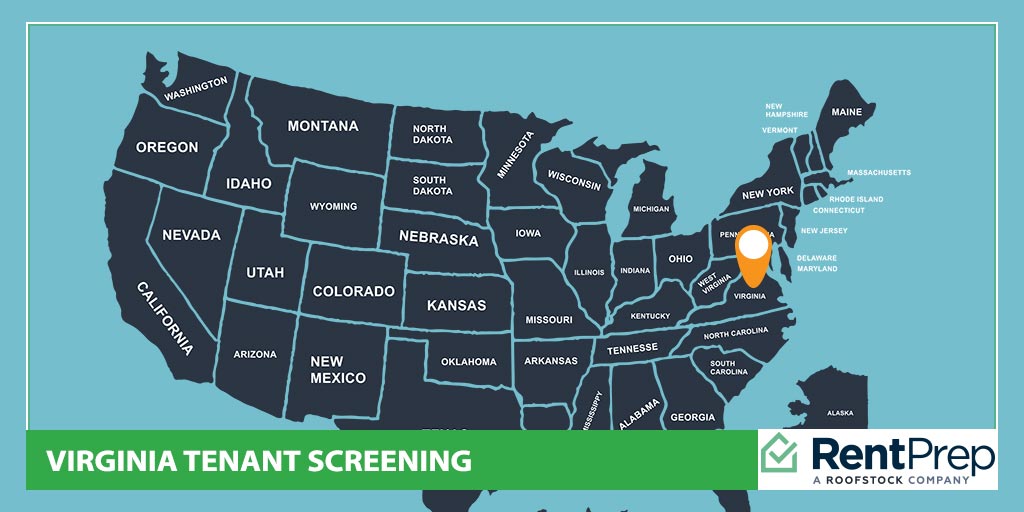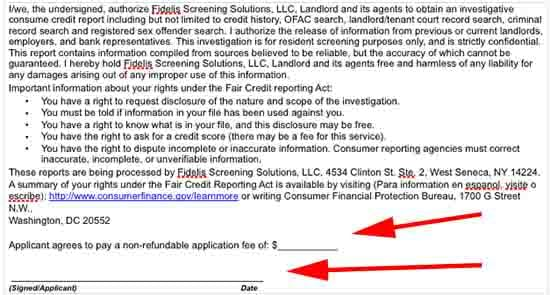
When it comes to Virginia tenant screening, landlords are doing the right thing by following all the unique rules and regulations in this state.
Our post today is a comprehensive look at several different topics that will help landlords like you find the best tenant to occupy your rental properties. These topics include:
- Virginia’s tenant screening laws
- Links to free resources
- Comprehensive overview of screening
- Finding the best tenant screening services
Virginia Tenant Screening Laws
As a landlord in Virginia, there are some things you need to be aware of.
Not every state has the same laws when it comes to tenant screening, so it’s important to learn the laws of Virginia so you stay compliant and do things the right way.
These are just a few of the things you should know:
- Virginia law says that landlords cannot charge more than $50 for an application fee.
- The application fee must pay for the screening services, and a separate application deposit can be collected.
- If the landlord doesn’t rent the unit to the applicant, the application deposit must be refunded within 20 days.
Remember that an application fee and an application deposit are not part of the security deposit that tenants must pay. They are entirely different and are subject to different laws than security deposits.
If you want even further detail on laws involved with Virginia tenant screening, check out this document.
Avoid This Common Screening Mistake
Did you know that you cannot run a background check on an applicant unless you have a signed consent form from them?
Check your rental application form to see if there is actually a section that requests a signature from the applicant to run a background check.
If you need an example, here is an excerpt from the language we use on our forms at RentPrep.

See how the first red arrow shows the application fee is non-refundable.
See how the second red arrow shows where the applicant must sign, giving consent to run a background check.
Resources for Tenant Screening in Virginia
You can’t afford to skip over these free forms and helpful resources to aid you in finding the best possible tenant for your rental.
- Rental Application PDF – Have every prospective tenant fill out this rental application.*
- Move-In Move-Out checklist – This is helpful for after the tenant screening process to make sure you document the condition of the rental
- Rental Lease Agreement – Once you’ve decided on a tenant you’ll want to draw up a lease. This editable doc is a good starting place.
- Summary of Your Rights Under the FCRA – Our screeners here at RentPrep are FCRA certified to ensure compliance on your screening report
- Virginia Landlord/Tenant Handbook – Comprehensive guide on landlords and tenants
- Virginia Legislature’s Landlord/Tenants Statues and Codes – Actual laws on Virginia landlord/tenant laws
*If you don’t already do the “No Blank Space” policy, you should start to follow it on all future rental applications. It’s a policy where you don’t accept applications with any blank spaces on it. That’s because applicants with something to hide may not fill out certain areas, leaving them blank. By not accepting rental applications with blank spaces you can potentially weed out bad applicants.
Virginia Tenant Screening Process
Smart landlords come up with a list of screening criteria for each of rental property. This list helps clarify the factors that would qualify someone to rent from you.
Screening criteria generally includes such things as:
- No smoking
- No history of violent crimes
- Acceptable credit score range
- Must have worked at the same job for past 6 months minimum
- No previous evictions
While you can create a list with as many factors as you want, you cannot discriminate against any of the protected classes as outlined at this website: hud.gov.
When your screening criteria is written down and you use it for each application, you can avoid a lawsuit from a denied applicant or government agency.
In other words always be consistent when screening applicants and use the list every time. Never make exceptions and always stick to the criteria on the list. Avoid choosing a tenant using a case-by-case scenario. Instead, using the same list of screening criteria can help you avoid discrimination claims.
Remember that the tenant screening process is pretty basic but there are a few things to remember for Virginia landlords.
- There’s a limit to how much a landlord can charge for an application fee
- Virginia landlords can only charge up to two months rent for a security deposit
- Virginia law allows for application deposits as well as application fees
For more on landlord-tenant laws and Virginia tenant screening, this guide can help.
[activecampaign form=140]
Choosing the Right Screening Service
So now you’ve managed to narrow the search down to a few applicants, and now it’s time to find a screening service to run a background check.
A good background check should always include the following items:
- Address history
- Eviction history
- Bankruptcy search
- Judgment and lien
Never trust your gut feeling when it comes to choosing a tenant. Instead, rely on the tried and true method of background screening.
Here at RentPrep we’ve worked with over 21,000 landlords over the past 10 years.
Check out our tenant screening packages to see the services we offer.
Our FCRA certified screeners are the best and work hard to provide the best tenant screening report available.

